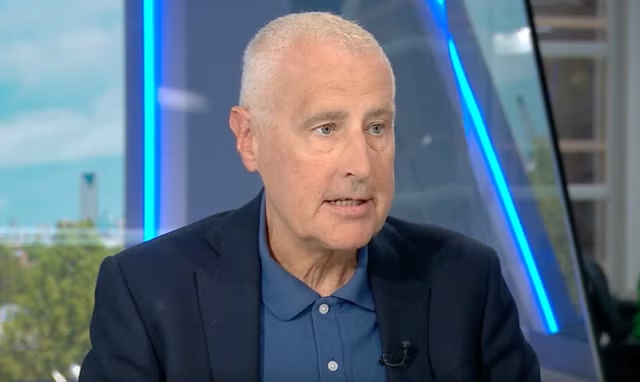
Former Sky News presenter Dermot Murnaghan has publicly urged men to demand prostate cancer screening after revealing his own stage-four diagnosis.
Speaking to Anna Jones on Sky News, Murnaghan explained that he had no obvious symptoms of prostate cancer, such as frequent urination or blood in the urine—before suddenly falling seriously ill while abroad. After returning to the UK, he was treated by the NHS and diagnosed with advanced disease.
He is now urging men, particularly those over 50 or with a family history of the illness, to be proactive and request a prostate-specific antigen (PSA) test.
The PSA test measures the level of prostate-specific antigen in the blood, which can indicate prostate problems, including cancer. While it has been debated in the past, recent improvements have made the test more accurate and valuable for early detection.
Murnaghan highlighted the importance of diagnosing prostate cancer early, not just for patient outcomes, but also for the healthcare system:
"They might cost a little bit more money, but think about the money you save," he said.
"Treating people who get to my stage, there's an awful lot of things that are being thrown at me that are costing a lot of money.
"As in so many other cancers, if you are diagnosed much, much earlier, then of course you save money much further down the line."
Currently, the UK does not have a formal prostate cancer screening programme. Men must actively request the PSA test, unlike the standardised screenings offered for breast or cervical cancer.
According to the NHS, prostate cancer symptoms often appear only once the cancer has grown or spread. Warning signs may include:
Despite being well-informed about the risks, Murnaghan admitted he delayed taking the test:
"I foolishly sat in your [presenter Anna Jones] position for many many years speaking to people about this very issue and talking about men, particularly over the age of 50, men in high risk groups who may have a history of it in their family, to go and ask for this screening...
"And I kept thinking you know 'once I got over that age I will go and do that'," he said.
"I kept thinking, 'okay well you know I'll get round to it', life intervenes, jobs, children, holidays…all kinds of things and I never did…
"So what happened was at the end of last year I fell very ill on a foreign holiday and kind of rushed back here to get treated by a wonderful health service and was diagnosed, a real bolt from the blue."
Murnaghan’s call for more widespread screening comes as One Cancer Voice, a coalition of more than 60 cancer charities, warns that over six million new cancer cases could be diagnosed in England by 2040. This means a new cancer diagnosis every two minutes—double the rate seen in the 1970s.
Charities are urging the government to accelerate diagnosis targets and prevention policies to better manage the growing demand.
Prostate cancer that is detected early is often highly treatable. By contrast, treatment at an advanced stage can be complex and demanding, both physically and financially.
At Private Medical Clinic, we help men take proactive steps to protect their health. If you are over 50—or younger with a family history—it is worth discussing PSA testing with a doctor. Fast access to investigations and onward referrals can make a crucial difference.
Book a Private GP Appointment today to discuss prostate cancer screening.





